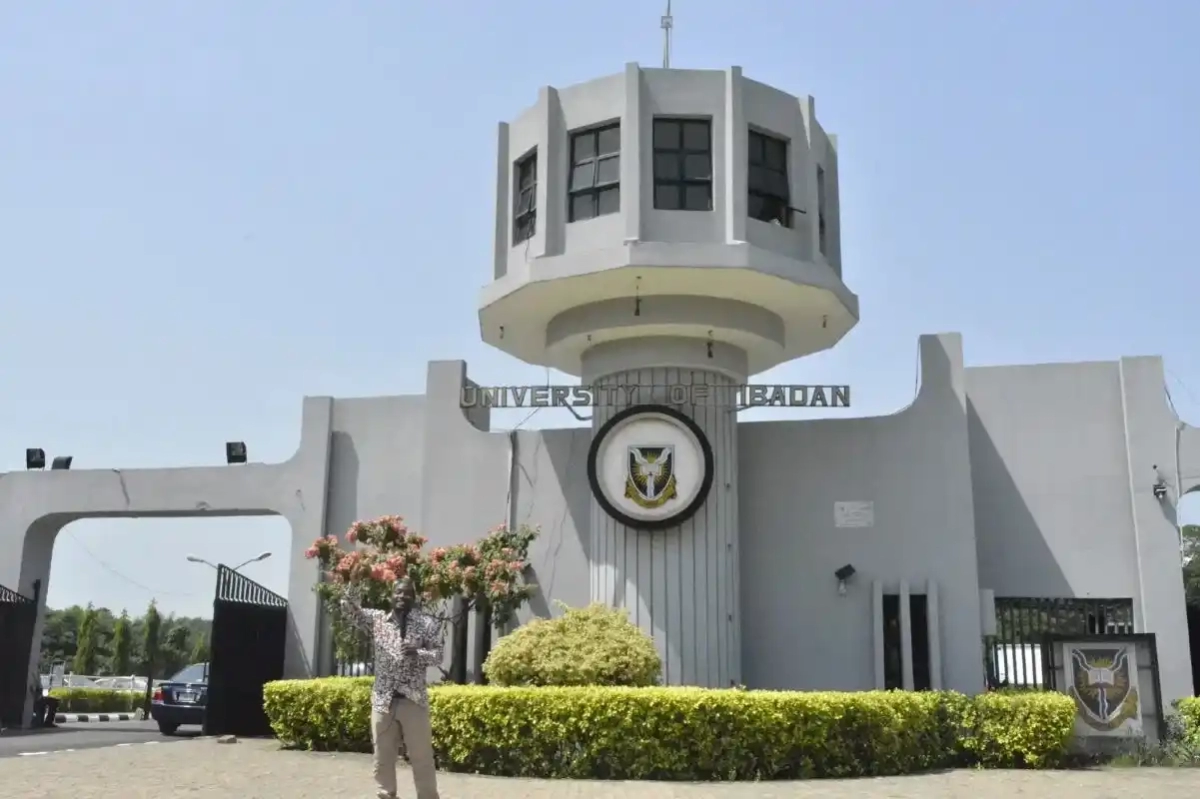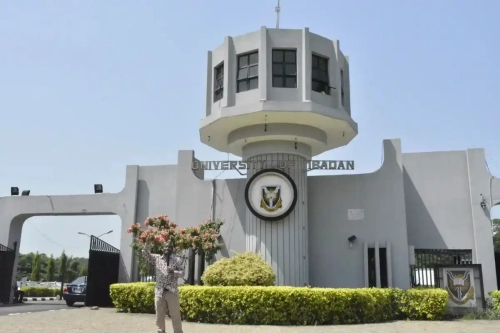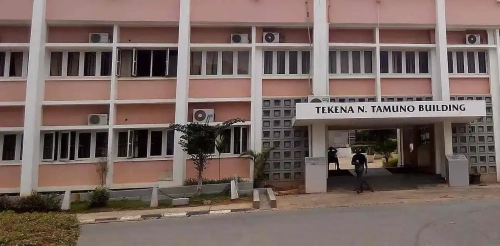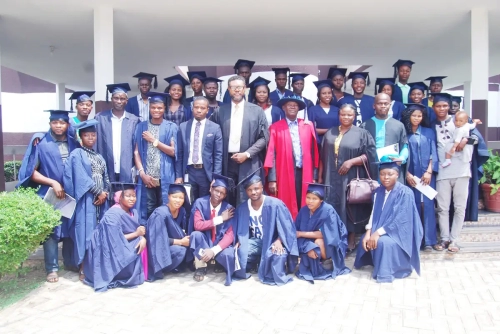The University College, Ibadan was founded in 1948. At first, it occupied the old site previously used by the 56th Military General Hospital about eight kilometers away from the 'new' or permanent site. The new site covered over 1,032 hectares of land generously leased by the chiefs and people of Ibadan for 999 years. With equipment transferred from Yaba Higher College, the 104 foundation students (including 49 students in teacher training and survey courses) began their courses at Ibadan, on 18 January, 1948; the formal opening took place on 25 March, 1948. In February, 1948, London University allowed Ibadan its special relationship scheme. Arthur Creech Jones, then Secretary of State for the Colonies, and an influential member of the Elliot Commission, turned the first sod at the permanent site of the University College, on 17 November, 1948, which became the Foundation Day.
| Acronym | UI |
| Nickname | Unibadan |
| Motto / Slogan | To think straight is the fount of knowledge |
| Colour | Indigo-blue, Gold |
| Founded | 1948 |
| Departments | 140 |
| Location | Ibadan North, Oyo, Nigeria |
| Address | University of Ibadan, Ibadan, Oyo State, Nigeria. |
To expand the frontiers of knowledge through provision of excellent conditions for learning and research.
To be a world-class institution for academic excellence geared towards meeting societal needs.

The University of Ibadan's primary objective is to be a world-class institution for academic excellence, striving to meet societal needs.
The University of Ibadan is renowned for its academic excellence and is consistently ranked as one of the top universities in Nigeria and Africa. It has a long-standing reputation for producing highly skilled and knowledgeable graduates.
The university is recognised both nationally and internationally for its quality education and research contributions. A degree from the University of Ibadan carries prestige and can enhance your career prospects.
The university boasts a diverse and experienced faculty who are experts in their respective fields. They are dedicated to providing high-quality education, mentorship, and guidance to all students. We are endowed with over 650 outstanding and award-winning Professors.
The University of Ibadan offers a wide range of postgraduate programs across various disciplines. Whether you are interested in humanities, sciences, social sciences, or professional fields, you are likely to find a program that aligns with your interests and career goals.
The university is located in Ibadan, a city known for its rich cultural heritage and vibrant social scene. You will have the opportunity to immerse yourself in the local culture, participate in extracurricular activities, and form lifelong friendships and networks.
Acceptance Fee: N30000
UTME (JAMB route):
Direct Entry (DE) (for ALevel/NCE/HND holders):
Email: [email protected]
Phone : 08020928000




National Universities Commission(NUC)
She joined the College of Medicine, UI, in 1987, becoming Professor of Ophthalmology in 1998, and specializing in paediatric ophthalmology and glaucoma. Prof. Baiyeroju has held roles including Head of Department (1999–2003), Deputy Provost (2006–2010), Faculty Chairman and Chief Examiner for the West African College of Surgeons (2003–2007), Editor-in-Chief of the Nigerian Journal of Ophthalmology (2008–2012), and Elective / Treasurer roles within WACS. She chairs NIPOSS and serves as a WHO expert on childhood blindness programs. She has led significant grants—including WHO-funded childhood eye-care initiatives (2004–2008) and the “Seeing is Believing” program (2017–2020).
Since November 9, 2021, she has served as Deputy Vice?Chancellor (Academic) at the University of Ibadan—representing the VC at key events, hosting international delegations, advocating holistic academic values, and leading workshops on health, food safety, gown?town collaboration, and student leadership. She has published over 100 peer?reviewed articles and continues to supervise research in paediatric eye care
Mr. Saliu joined the University of Ibadan as Deputy Registrar in July 2014, where he served in several key roles, including Head of the Establishments Division. In 2020, he took a leave of absence to serve as Registrar at Olusegun Agagu University of Science and Technology. On February 9, 2023, the Governing Council of the University of Ibadan appointed him as the institution’s 13th Registrar, and he officially assumed office on April 11, 2023.
He is a Fellow of the Society for Peace Studies and Practice as well as the Chartered Institute of Management and Leadership. Mr. Saliu continues to play a pivotal role in university governance as Registrar, Secretary to Senate, and a representative at major institutional events.